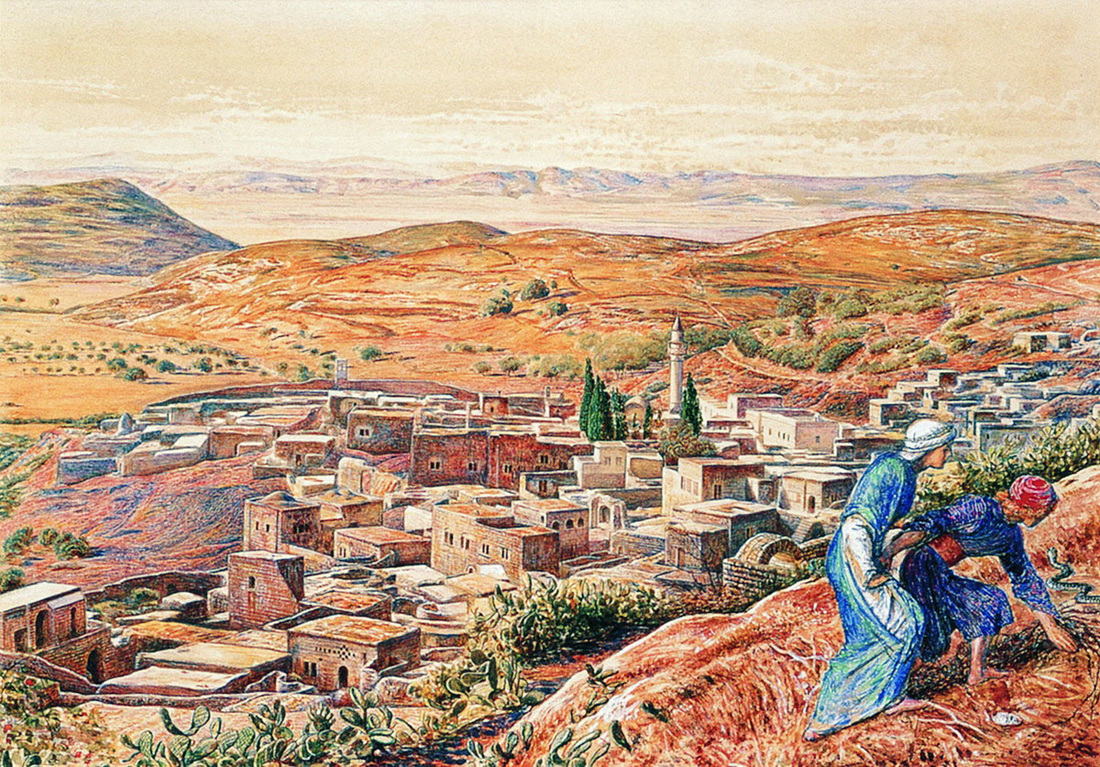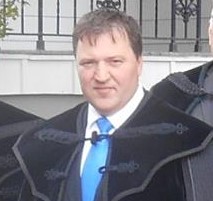Copyright © 2016, by Rev. Tamas Devecseri, all rights reserved.
|
Do you recognize evil in the world? I know you do as most people do in their lives. Evil exists and many of us troubled by God, why to let it continue. It is a mystery of God that we will fully understand, when we meet with our maker in heaven, yet until then, we must pray for God’s protection daily. If you heard about the Panama Papers in the news you might just smile without being really surprised or upset about the greed of wealthy people. They have plenty, yet they secretly cover the unthinkable amount of extra cushion of treasure from the government’s tax man, while you struggle to make ends meet and you pay your dues, while children in different parts of the world go to bed hungry. Evil is cleaver and crafty does not care about others, but only itself. When it comes to sin, it is similarly to evil is a force that is self-centered and works to isolate you from God. It makes you satisfied for a moment, but will torment you on the long run and will lead you to distraction. Therefore, be gracious to God for the grace and righteousness that God grants you by Christ free from judgement. Live the words of the psalmist (73:28): “As for me, it is good to be near God. I have made the Sovereign Lord my Refuge”. Felismered-e a gonoszt a világban? Tudom, hogy a válasz igen, hiszen a legtöbb ember sokszor beszél róla életében. A gonosz létezik és sok hívő ember tanakodik azon, hogy az Isten miért engedi? Ez egy titokzatos kérdés, amire választ csak akkor kapunk majd, amikor megérkezünk a mennyek országába, ahol a Teremtő Istennel találkozunk, de addig imádkoznunk kell minden nap, hogy az Úr őrködjön felettünk a gonosz ellen. Ha hallottál az elmúlt hetek híreiben a Panamai Papírokról, akkor talán csak mosolyogtál és már nem is csodálkoztál a gazdag emberek kapzsiságán, akiknek van elég, de mégis titokban elrejtették az egyszerű ember számára elképzelhetetlen összegeket. Gazdagságuk felgyülemlett kincseit bűntudat nélkül elmenekítették, hogy az adóhatóságnak ne fizessék meg ami jár, miközben az egyszerű hétköznapi ember nélkülöz és becsülettel adózik, miközben a világ számos részein gyerekek éhesen hajtják le fejüket párnájukra. A gonosz leleményes, furfangos és önző. A gonosz nem törődik mással, csak önmagával. Amikor bűnről beszélünk, sok hasonlóságot fedezhetünk fel a gonosz és a bűn között, hiszen a bűn ugyanúgy, mint a gonosz, önös céljait szolgálja és azon munkálkodik, hogy gátat építsen közötted és Isten között. Pillanatnyi örömöt ad, de hosszú távon kínoz és elpusztít. Ezért légy hálás Istennek a kegyelméért, amit a Jézus Krisztusban nekünk ingyen megad és éld életedet a biblia szavai szerint: ,,De nekem olyan jó Isten közelsége! Uramat, az Urat tartom oltalmamnak. Hírdetem minden tettét.” (73. Zsoltár, 28. vers)
Copyright © 2016, by Rev. Tamas Devecseri, all rights reserved. In the modern world of Christians we tend to not use the name, Nazarene to associate with Jesus Christ. At the same time in many parts of the world, where our Christian brothers and sisters are being killed and persecuted the word Nazarene is their identity, which separates them from their neighbors and makes them the targets of their nemeses. The Gospel of Matthew says about Jesus (2:23), he came and dwelt in a city called Nazareth, according to the prophecy, so he can be called the Nazarene. The Hebrew root of the word Nazareth has a negative connotation. It yields to division in a place from which nothing good can come out of. Jesus knew this, yet he chose to live a simple life and work miracles in and around that city for thirty years. He was needed there without a doubt. Could he go and live somewhere more glamorous like Jerusalem? I think the answer is yes, yet he chose otherwise. For Jesus there was nothing to hide, nothing to run from, there was no misery that could stop him to love and serve God and others, even in a place that people seldom wanted to live in. How different we are from him, always searching for a better place, a new dream, while we discard people, places and sources of secret sores that we have left behind. The bible teaches us in Ecclesiastes that there is a time for everything, including looking back what we have left behind, and face the painful past that haunts our present lives. Be brave, trust God, and turn to those you knew long ago and forgot. Extend your arms to them. Serve God with a joyful heart to give glory to God the same way as the Nazarene did. Úgy gondolom, hogy manapság nem használjuk sokszor azt a megnevezést, hogy názáreti, amikor Jézus Krisztusról beszélünk. Pedig a világ több pontján, ahol a keresztyén testvéreinket üldözik, pont ugyanezzel a názáreti szóval különböztetik meg őket másoktól.Máté evangéliumában (2:23) olvashatunk arról, hogy Jézus Krisztus Názáretben élt, hogy a prófécia beteljesüljön. A Názáret szó héber gyökere pedig, negatívumot hordoz, szétválást, arra utalva, hogy Názáret egy olyan hely, ahol csak rossz dolgok történnek, ahonnan semmi jó nem várható. Jézus Krisztus ezt tudta, de mégis úgy döntött, hogy ott él egy egyszerű életet és szolgálja, gyógyítja az embereket. Minden bizonnyal szükség volt rá ott, de mehetett volna máshová is. Élhetett volna Jeruzsálemben, a vallás és hatalom közelében, de ő nem ezt választotta. Jézus Krisztus nem menekült, nem volt mit titkolnia, Jézus nem hagyott hátra senkit, számára nem volt olyan nyomorúság, amit Istenért nem viselt volna el ott, ahová az Úr akaratából került. Ott maradt Názáretben, ahol Istent dicsőítette szolgálatával, ahová nem özönlöttek az emberek, hanem inkább elmenekültek. Sokan képtelenek vagyunk egy helyben maradni és életünket önfeláldozóan élni. Folyton jövünk, megyünk, állandóan azon gondolkozunk, hogy hol lesz nekünk jobb. Szüntelen szőjjük álmainkat. Képesek vagyunk egyik napról a másikra összecsomagolni és egy távoli helyen új életet kezdeni és mindent, ami a múlt, magunk mögött tudni. Bibliánk azt mondja A prédikátor könyvében, hogy mindennek megvan a maga ideje, annak is, amikor vissza kell tekintsünk, hogy mit hagytunk magunk mögött és szembenézni fájó, elhagyott emlékeinkkel és múltunkkal. Légy bátor és fordítsd arcodat azok felé, akiket már elfelejtettél és szolgálj másokat örömmel az Isten dicsőségére úgy, mint a názáreti Jézus tette. Copyright © 2016, by Rev. Tamas Devecseri, all rights reserved. |
The Reverend Tamas Devecseri serves the Hungarian Reformed Church of Carteret since September of 2012. He was born in Gyongyos, Hungary, moved to the USA in 1991. He received his B.A. degree in Rutgers University in New Brunswick, New Jersey, his Master of Divinity degree in the New Brunswick Theological Seminary, where he also received the Certificate of Fitness for Ministry as a student, in the care of the Reformed Church In America. He received the call to serve at the Hungarian Reformed Church of Carteret, where he was ordained and installed as a full time pastor. Archives
August 2021
Categories |



 RSS Feed
RSS Feed
